Framingham police release drone policy. What does the ACLU of Mass. think?
FRAMINGHAM — Police say drones can be an important crime-fighting tool. But civil liberties groups, such as the ACLU of Massachusetts, say using the unmanned flying devices can also violate people's privacy.
More: Drones have 'unlimited uses.' Here's how area police departments are using the technology.
The Framingham Police Department recently finalized the policy for its drone program, which Chief Lester Baker said is designed to alleviate privacy concerns.
"There's nothing in the policy that people wouldn't want in it," he said.
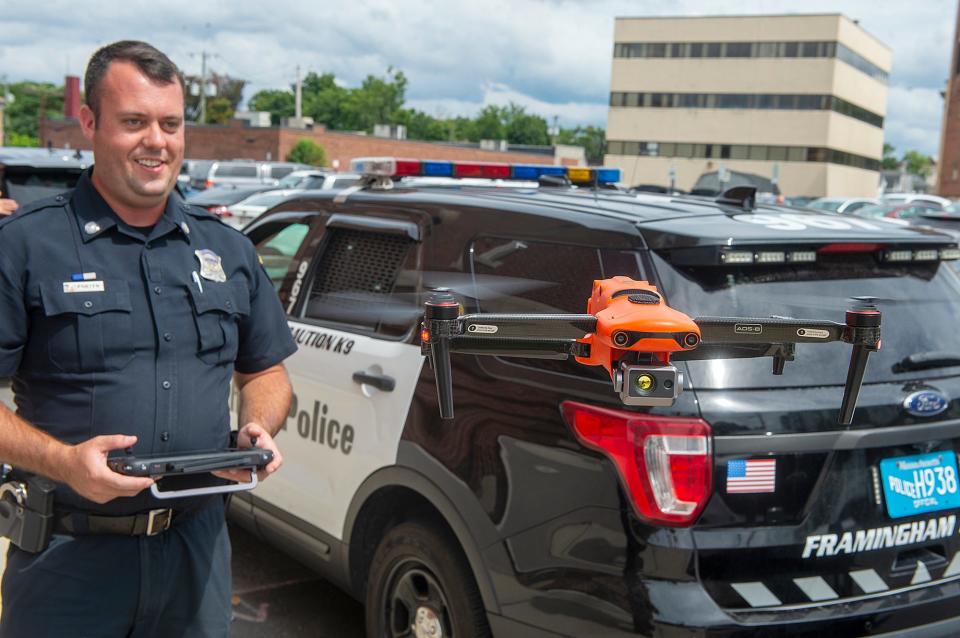
After reviewing the policy, officials from the ACLU of Massachusetts called it "a good start," noting that while there were some positives, they hoped there would be additional restrictions.
Spot on patrol: Robotic police 'dogs' have privacy watchdogs worried
For example, the ACLU prefers that police be prevented from using their two drones drones to monitor those who are "exercising their First Amendment rights" to assemble and/or protests, and to not allow for the use of facial recognition technology or the collection of data that could be accessed by other local, state or federal law enforcement agencies.
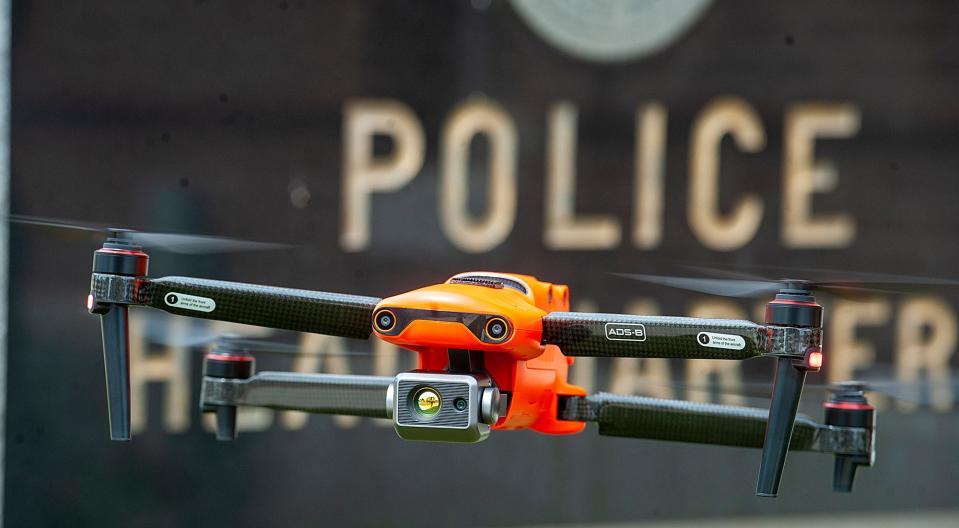
"Drones greatly expand the ability of local police to conduct surveillance and can pose a serious threat to privacy," said Emiliano Falcon-Morano, policy counsel for the Technology for Liberty Program at the ACLU of Massachusetts: "The ACLU believes they must be strongly regulated. The Framingham police drone policy is a good starting point and includes some provisions to protect civil liberties. We believe, however, it should be strengthened to better protect due process, free speech and privacy rights."
Restrictions in place
Baker said the department has no plans to add further restrictions to its drone policy, noting it already excludes several uses.
Drones may only fly within federal- and state-approved airspace; can't be used beyond a line of sight by the pilot without prior FAA approval; can't conduct random surveillance activities; can't use any facial recognition platforms; and can't be used to harass or intimidate any individual or group, or target people based on race, ethnicity, religion, gender or sexual orientation, according to the policy.
Drones will only be used to look into homes or other private areas if the department is granted warrants from a court allowing them to do so, according to the policy.
The policy spells out what the drones will be used for.
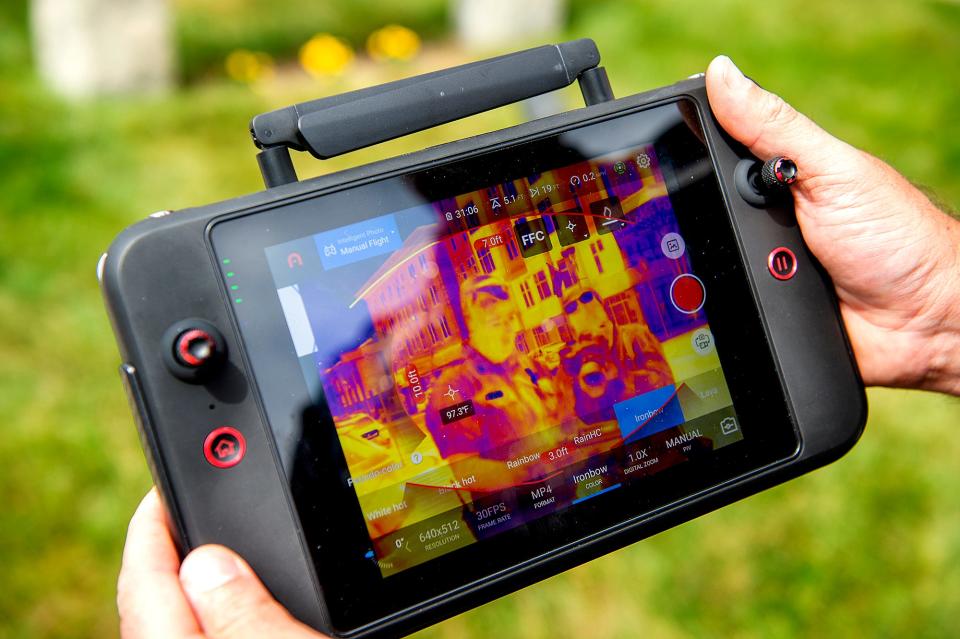
Uses include for damage assessment, such as in the event of a house fire, car crash or natural disaster. The two drones will also be used for search-and-rescue missions, such as for a missing child or adult.
"They are equipped with thermal imaging cameras, which greatly enhance our ability to search, as well as to search in a larger area," Baker said.
More: $123,000 federal grant will help Framingham police find missing people
Drones will also be used to assist at fire scenes. They can fly over a burning house and use both regular and thermal imaging cameras to find hot spots, as well as assist firefighters in finding a burning area or avoiding an unseen item that could pose a danger, Baker said.
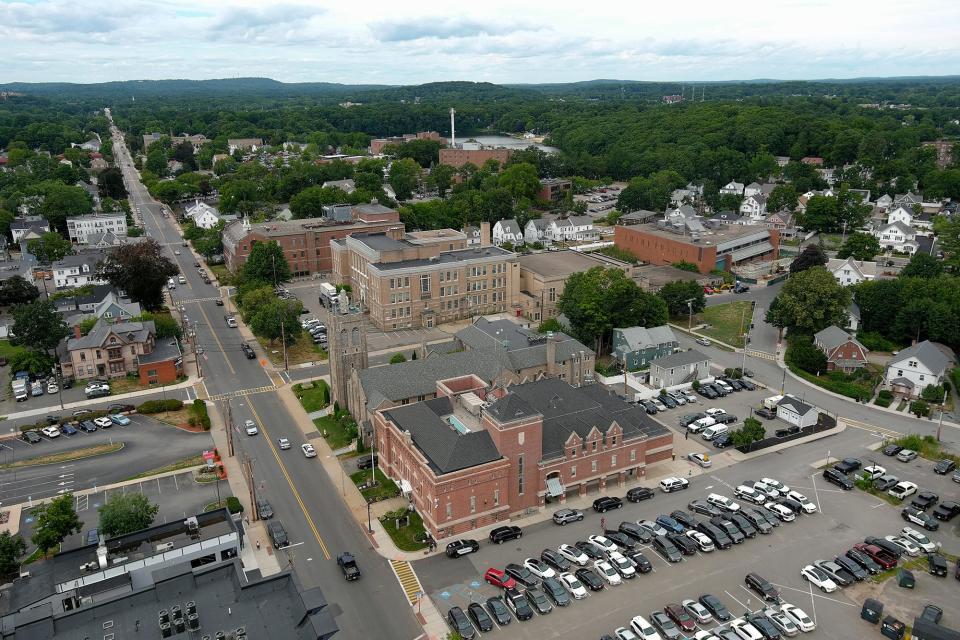
Dangerous incident applications
The drones, according to the policy, can be deployed to protect officers or minimize risks to bystanders during "potentially deadly incidents." Those incidents can include an armed barricaded suspect, armed suicidal suspects, high-risk search warrants, hostage situations and bomb threat investigations.
"Use of these UAS (Unmanned Aircraft Systems) for these safety purposes should be limited to incidents involving felony suspects, or involving persons who are emotionally or mentally debilitated and pose a risk of serious bodily injury or death to themselves or others, or those fleeing from police apprehension, or any situation requiring the capabilities of air support," the policy states.
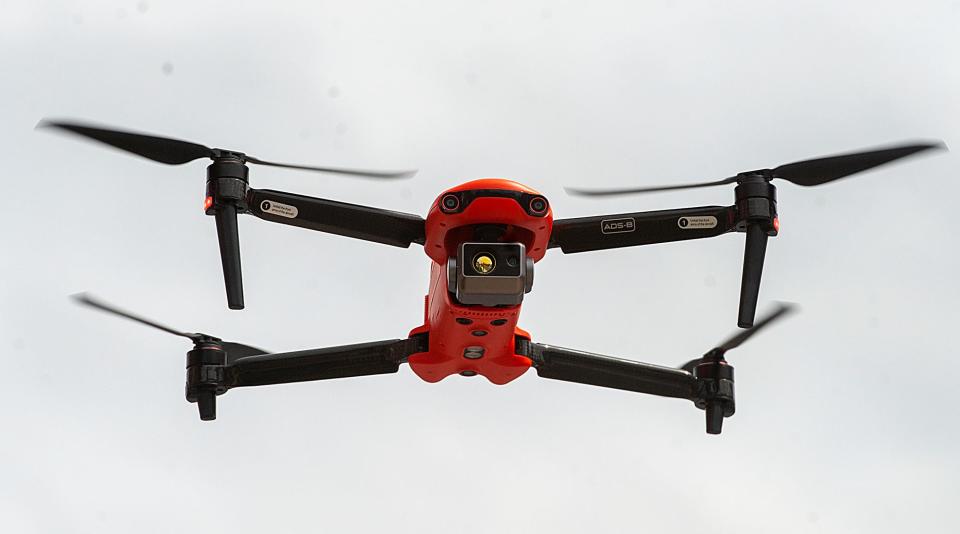
Other allowable uses, per the policy, include conducting hazardous material investigations, urban search-and-rescue missions, addressing critical hazards involving infrastructure, performing accident reconstruction and use by specialty units such as the dive team or traffic unit.
The policy also allows for the use of drones for demonstrations during community events.
The drones will not be in use immediately. Baker said it will require months for drone pilots to be chosen and trained on the new devices before deployment.
"We really think they're going to be useful tools with numerous benefits to the community," Baker said.
Norman Miller can be reached at 508-626-3823 or nmiller@wickedlocal.com. For up-to-date public safety news, follow Norman Miller on Twitter @Norman_MillerMW or on Facebook at facebook.com/NormanMillerCrime.
This article originally appeared on MetroWest Daily News: ACLU wishes for further restrictions of Framingham police drone policy

